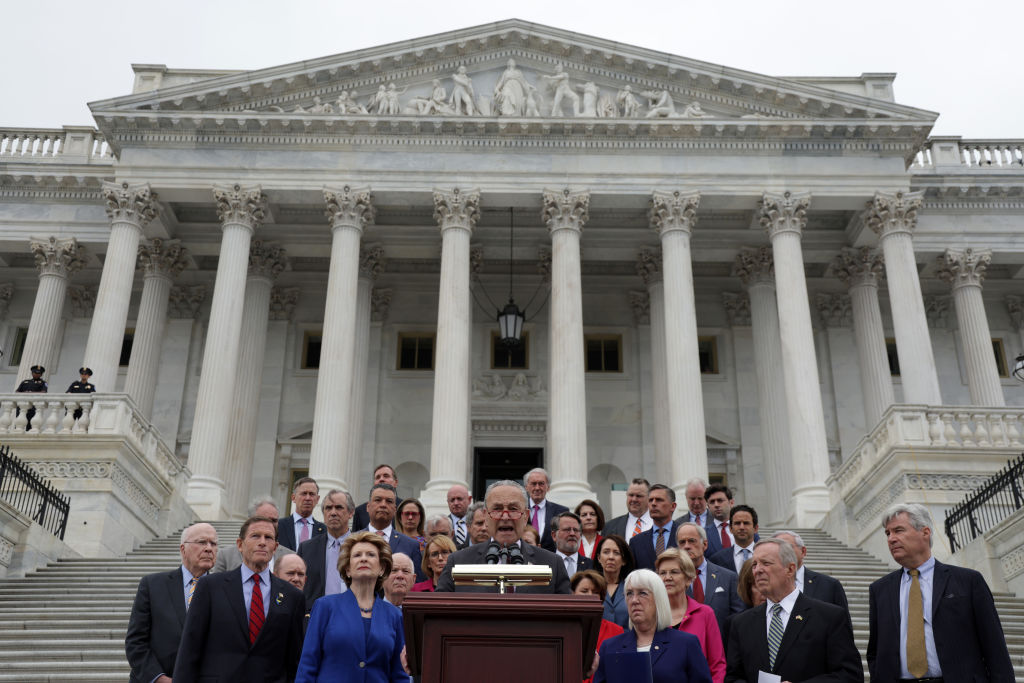Earlier this week, Politico published a leaked Supreme Court majority opinion overturning Roe v. Wade by ruling in favor of Mississippi’s ban on abortions after 15 weeks. The leak is “unprecedented,” as Politico notes, and whoever provided the draft of the opinion should be fired or (if it was a justice) impeached. The court has not yet ruled on the case, and opinions can change. But it seems unlikely that Samuel Alito, Clarence Thomas, Neil Gorsuch, Brett Kavanaugh or Amy Coney Barrett, who are reported as favoring the ruling, will change their position.
So what happens after Roe is struck down — if it is struck down?
Abortions will continue to be available in states where they are legal. Roe provided federal protection for abortions. Striking it would remove those protections and, as Alito notes in his opinion, returns “the issue of abortion to the people’s elected representatives” — that is, the states. Each state will decide, as did Mississippi, whether to allow abortions to take place within their borders, which means that abortion will likely remain legal in many states for years to come. The idea that the Supreme Court will make abortion illegal if it strikes Roe is absurd. It has simply removed a ruling that forced states to allow abortions.
The battle over abortion at the state level could go either way. Following the Civil War, Republicans had some success enfranchising the black population in the South and even scored electoral wins. But fortunes quickly changed, and just a few years after the war, Southern Democrats dismantled any progress towards enfranchisement and instituted Jim Crow laws enforcing racial segregation.
While the Court striking down Roe would certainly be a victory for pro-lifers, making abortion illegal in the United States is still very far off and may never become a reality. In fact, it could be that only a handful of states ultimately end up with abortion illegal, while the vast majority protect abortion and even expand its legality in some cases.
How the American political landscape will change without Roe is far from clear, though it will likely have a significant effect. Democrats may think that a country without Roe will be bad for Republicans. They have complained for years about one-issue voters who stick with the Republican Party because of its stance against abortion but who otherwise might find much they agree with in the Democratic platform. Now, with Roe gone, perhaps these voters will be more willing to consider supporting Democratic candidates and initiatives.
Democrats may also hope that the money and manpower that flowed to Republicans during the fight against Roe will dry up, leaving some Republican candidates short on cash and short on moral imperatives to whip voter engagement. At the same time, Democrats may also feel that the Supreme Court’s decision (again, if it holds) could help them harness the anger of abortion rights supporters to win seats in jeopardy because of skyrocketing inflation and the numerous blunders of the Biden administration.
But I think it is Republicans who have a real opportunity here. They can expand their constituency following Roe if they continue to pivot towards issues formerly owned by the Democrats, such as support for the working class, education reform and foreign policy realism.
Democrats likely overestimate the support for abortion among voters, which has been declining for years. A small but vocal minority may push them to make abortion a major issue in the upcoming elections, as it did with race relations two years ago. But this will cause the party to take positions more extreme than most voters. And it will cause Democrats to ignore those things that voters care most about — a living wage, safety and good schools.


















